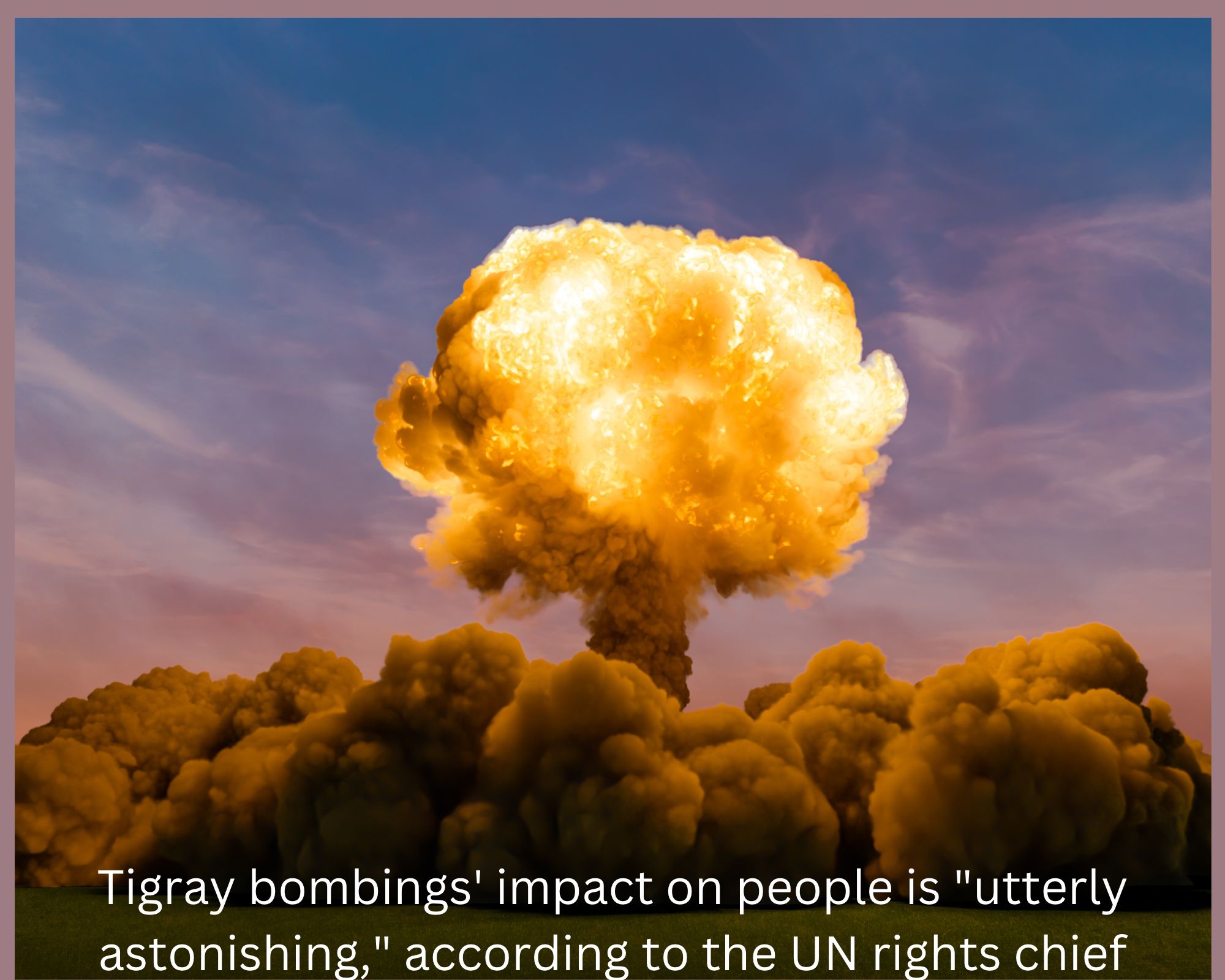Summary:
-
Since August 31, there have been numerous reports of civilian casualties and property destruction in Tigray due to airstrikes and artillery strikes.
-
The killing of an aid worker condemned The conflict between Tigrayan and Ethiopian government forces that lasted over two years.
-
The UN rights head urged the combatants to end their fighting and work toward peace.
-
Attacks that are “indiscriminate” or “deliberately target persons or civilian objects” are considered war crimes under international law, according to Mr. Türk.
-
Incoming High CommissionerIn September, Mr. Türk was appointed as the ninth individual to assume the UN High Commissioner for Human Rights position.
He cautioned that the recent worrisome airstrikes run the severe risk of escalating the already disastrous effects of the combat on people.
Since August 31, there have been numerous reports of civilian casualties and property destruction in Tigray due to airstrikes and artillery strikes. Communication breakdowns make it challenging to confirm information, but it is evident that the cost to civilians is staggering, according to Mr. Türk.
The killing of an aid worker condemned
The conflict between Tigrayan and Ethiopian government forces lasted over two years.
A five-year humanitarian truce declared in late March caused a break in the conflict, but hostilities have resumed.
One of those killed in recent instances was a staff member of the International Rescue Committee, a non-governmental organisation.
The relief worker was a group member providing humanitarian help to women and children. Mr. Türk declared that their death was “very reprehensible.”
As a result of the ongoing massive mobilisation of soldiers and combatants by various parties to the war, he remarked, “I am also gravely concerned about the enormous risk of escalation.
Attacks might constitute war crimes.
The UN rights head urged the combatants to end their fighting and work toward peace.
He reminded them of their responsibility to uphold international human rights and humanitarian law, particularly by taking steps to safeguard civilians and make it possible for aid workers to reach those in need.
Attacks that are “indiscriminate” or “deliberately target persons or civilian objects” are considered war crimes under international law, according to Mr. Türk.
He also emphasised the necessity of aiding efforts to ensure accountability for severe transgressions and breaches of international law throughout the conflict.
Incoming High Commissioner
In September, Mr. Türk was appointed as the ninth individual to assume the UN High Commissioner for Human Rights position.
The seasoned diplomat from Austria has about three decades of expertise in human rights, international law, and protection, including working with the UNHCR, the UN organisation for refugees.
Announcing that he will “always be guided – first and foremost – by the impact our work has on the people we serve,” the new rights chief assumed office on Monday.
He succeeded Michelle Bachelet, Chile’s twice-elected former president, who held the position from 1 September 2018 to 31 August 2022.
Analysis by: Advocacy Unified Network

